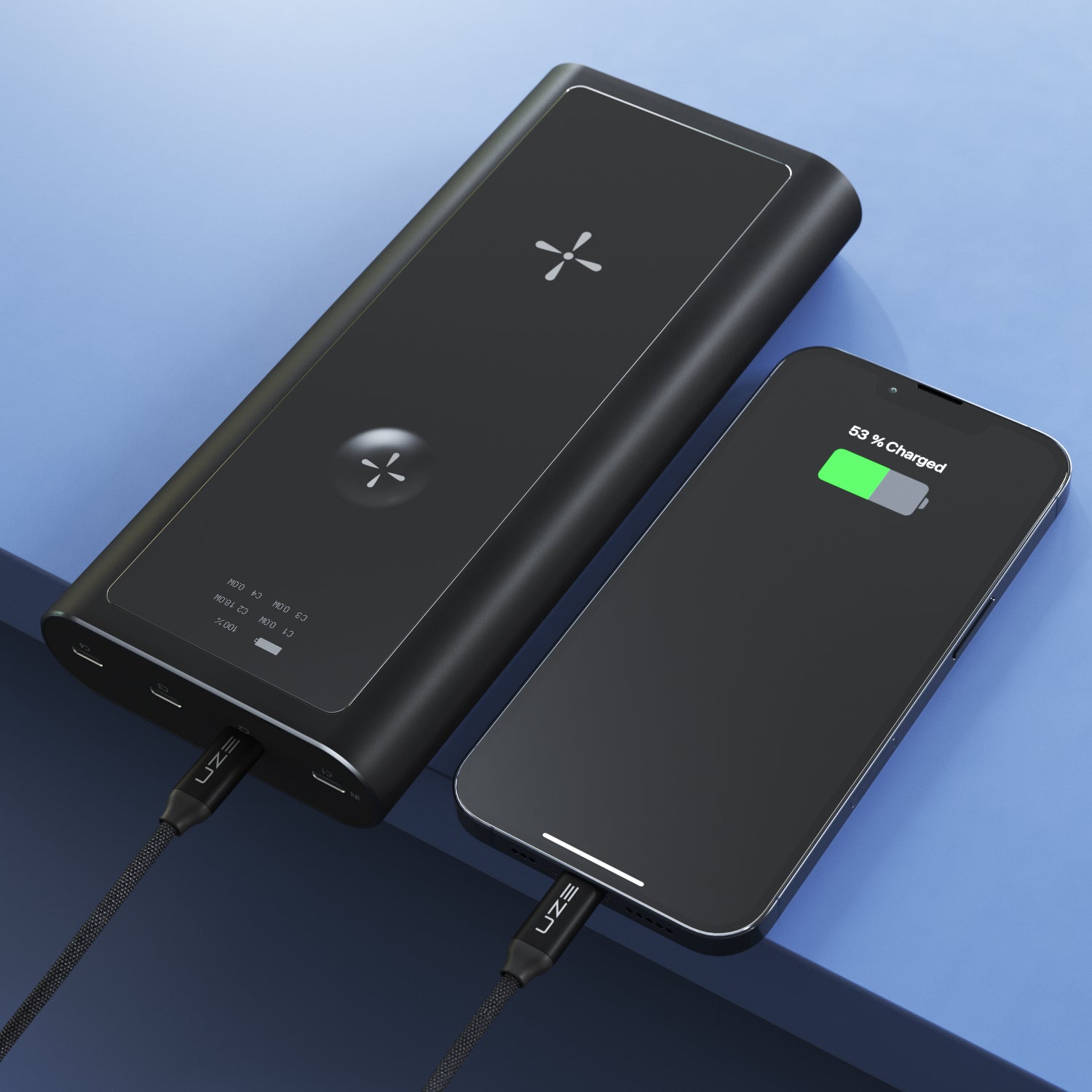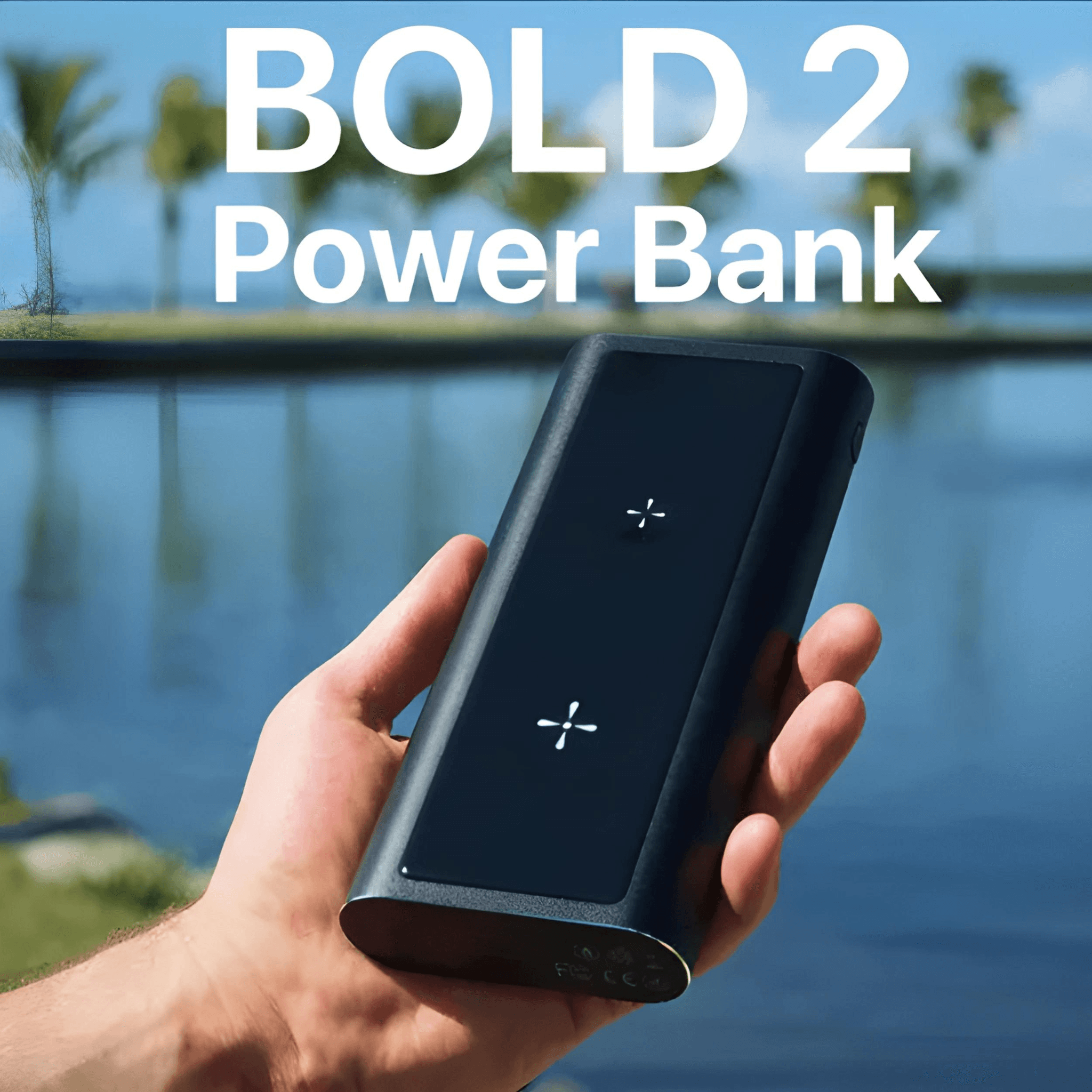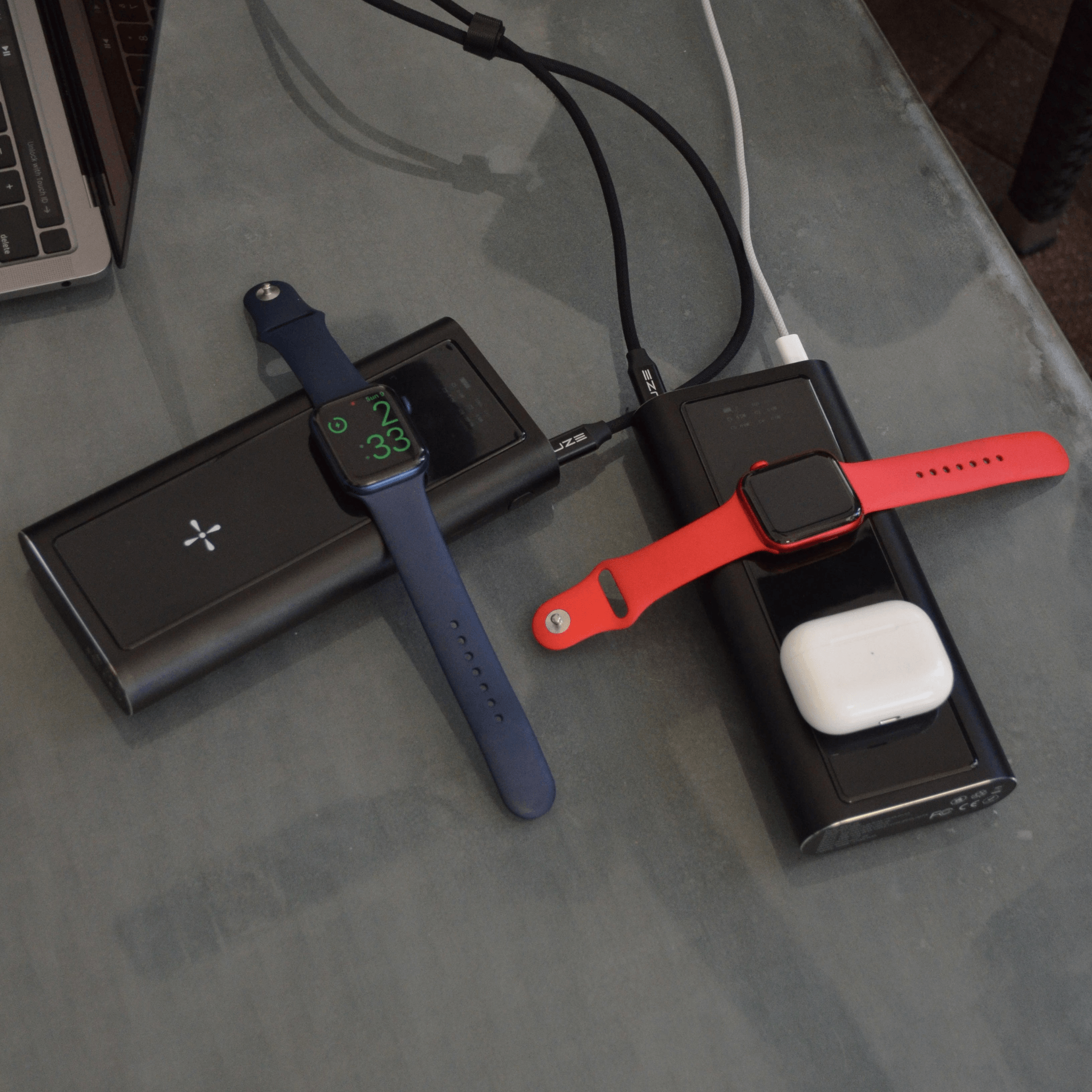Your portable charger, the lifeline for your devices in a world constantly on the go, might be deceiving you about its battery level. This bold claim might seem far-fetched at first glance, but it’s grounded in a startling reality we often overlook. At UZE, we've delved deep to uncover the truth behind traditional battery indicators and their misleading signals. This blog post will guide you through simple yet effective tests to determine if your portable charger is fully charged, ensuring you're never powerless when needed.
Let’s explore the common issues with traditional portable charger indicators and how UZE is revolutionizing this with our advanced display screen technology.
The Problem with Traditional LED Indicators
Most portable chargers use a series of LED lights to indicate battery level—a visually simple method but often inaccurate. Typically, these LEDs represent broad charging ranges (like 25%, 50%, 75%, and 100%). It can be misleading because a charger might show one light less than a minute before it jumps to the next. For example, a charger might show 75% just before it quickly drops to 50% without giving a true sense of the remaining charge.
Why LED Indicators Fail
- Lack of Precision: LED indicators round off to the nearest charging milestone, giving you a rough estimate rather than an exact figure.
- Timing of Updates: LED lights often update too slowly to reflect real-time changes in battery life, especially during heavy use.
- Degradation Misreading: As batteries age, their capacity decreases, but LED indicators might not accurately reflect this wear, leading users to overestimate their charger’s capacity.
UZE’s Solution: Advanced Display Screen Technology
In contrast to the vague estimates provided by LEDs, UZE’s portable chargers are equipped with a digital display screen that offers precise, percentage-based readings. This technology ensures you know the exact battery level at any given moment, which is essential for planning your device usage, especially when you're away from power sources for extended periods.
Benefits of UZE’s Display Screen
- Accuracy: The screen shows the exact percentage of charge left, removing the guesswork and anxiety of how long your charger will last.
- Real-Time Updates: The display updates instantly as the battery level changes, providing a real-time look at your power usage and remaining charge.
- Battery Health Monitoring: Our screens can also alert you to battery health and efficiency, indicating when to consider a replacement to maintain peak performance.
How to Test If Your Portable Charger Is Fully Charged
To ensure your charger is at full capacity, follow these simple steps using UZE’s display screen:
- Check the Display Frequently: Regularly glance at the display during charging to see if the battery level is increasing as expected.
- Test with Multiple Devices: Use the charger to power different devices and note how quickly the percentage drops on the display. This can indicate whether the charger is delivering a proper charge.
- Monitor During Usage: Keep an eye on the display while charging devices. If the percentage decreases slowly, your charger is in good health. Rapid drops might suggest it’s time to check the battery’s condition or consider a replacement.
Power at a Glance: Trust UZE for Unmatched Accuracy
UZE is revolutionizing how you charge on the go with our advanced display screen technology. Moving away from the vague estimates of traditional LED indicators, our precision digital displays ensure you always know exactly how much charge you have left. This accuracy builds trust and boosts your confidence in our chargers' reliability, setting a new standard in the portable power industry. With UZE, you're not just guessing—you're genuinely powered. Ready to experience the next level of charging innovation? Choose UZE today and see the power difference for yourself by checking their website at https://uze.tech/.




Hinterlasse einen Kommentar
Diese Website ist durch hCaptcha geschützt und es gelten die allgemeinen Geschäftsbedingungen und Datenschutzbestimmungen von hCaptcha.